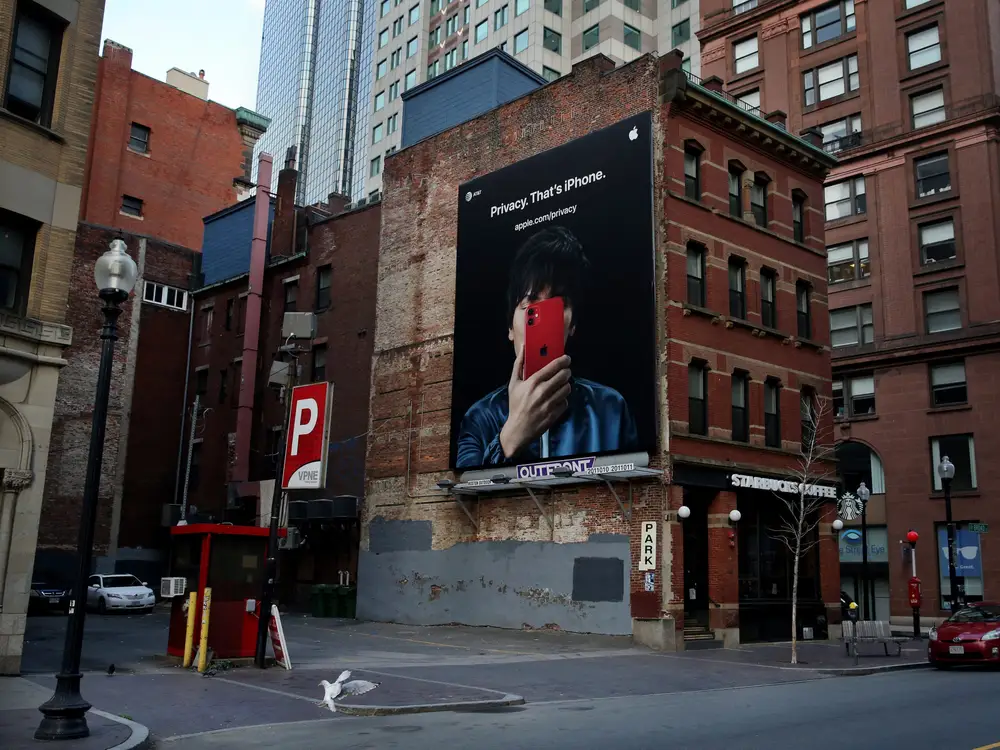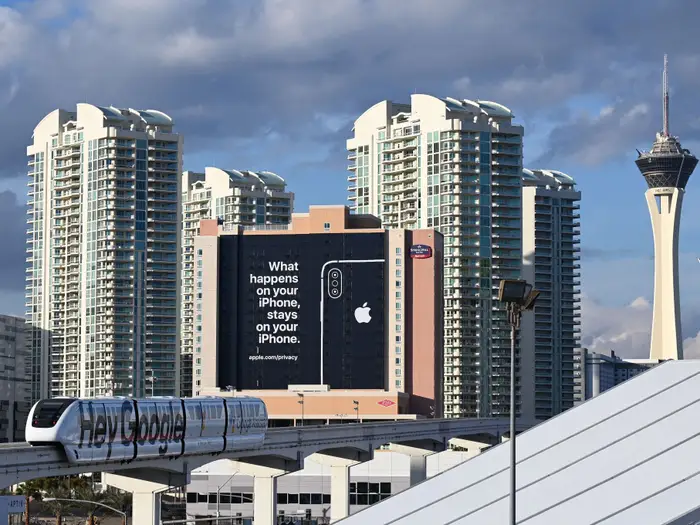Former Apple Engineer Says the Button on iPhones Asking Apps Not to Track You Is a ‘Dud’ That Gives Users a ‘False Sense of Privacy’
WHISTLEBLOWING - SURVEILLANCE, 27 Sep 2021
Hannah Towey | Business Insider - TRANSCEND Media Service
- In April, Apple rolled out a privacy feature that allows users to ask apps not to track their data.
- A new study found popular iPhone apps are still collecting user data — even if they’re asked not to.
- Apple claims “what happens on your iPhone, stays on your iPhone.” A former employee says argues that’s not the case.
24 Sep 2021 – Johnny Lin, a former Apple engineer and co-founder of the software company Lockdown Privacy says Apple’s “Ask App Not To Track” button is a “dud” that gives users “a false sense of privacy,” according to a Washington Post report.
Even if users request apps not to collect their activity across other companies’ apps and websites, popular iPhone apps like Subway Surfers still collect personal data, a new study by Lockdown Privacy determined.
“We found that App Tracking Transparency made no difference in the total number of active third-party trackers,” the study says. “We further confirmed that detailed personal or device data was being sent to trackers in almost all cases.”
Sybo, the company that makes Subway Surfers, told The Washington Post that “in order for the game to function properly, some data is communicated to Ad Networks,” but did not explain why detailed personal information was required. “As a company, we do not track users for advertising purposes without their consent,” Sybo added.
“When the user selects ‘Ask App Not to Track,’ the app is informed that the user would not like to be tracked by any means, and all developers — including Apple — are strictly required to comply with the user’s choice,” an Apple spokesperson told Insider. “If we discover that a developer is not honoring the user’s choice, we will work with the developer to address the issue, or they will be removed from the App Store.”
Lockdown Privacy’s findings are in stark contrast to Apple’s privacy-focused marketing campaigns, highlighted in advertisements like this giant billboard in Las Vegas claiming “What happens on your iPhone, stays on your iPhone.”
Critics of the ad have called it misleading. Much of what users do on their iPhones and the data they generate doesn’t stay on their devices. iPhones routinely send some data to wireless carriers, websites, app developers — and to Apple’s own servers and services.
Apple recently announced plans to update its iOS software to scan iPhones for child sexual abuse imagery, but has since delayed the plan after criticism from privacy advocates.
___________________________________________
Tags: Apple, Big Brother, Big tech, Cellphones, Corruption, Privacy, Privacy rights, Spying, Surveillance, Technology
DISCLAIMER: The statements, views and opinions expressed in pieces republished here are solely those of the authors and do not necessarily represent those of TMS. In accordance with title 17 U.S.C. section 107, this material is distributed without profit to those who have expressed a prior interest in receiving the included information for research and educational purposes. TMS has no affiliation whatsoever with the originator of this article nor is TMS endorsed or sponsored by the originator. “GO TO ORIGINAL” links are provided as a convenience to our readers and allow for verification of authenticity. However, as originating pages are often updated by their originating host sites, the versions posted may not match the versions our readers view when clicking the “GO TO ORIGINAL” links. This site contains copyrighted material the use of which has not always been specifically authorized by the copyright owner. We are making such material available in our efforts to advance understanding of environmental, political, human rights, economic, democracy, scientific, and social justice issues, etc. We believe this constitutes a ‘fair use’ of any such copyrighted material as provided for in section 107 of the US Copyright Law. In accordance with Title 17 U.S.C. Section 107, the material on this site is distributed without profit to those who have expressed a prior interest in receiving the included information for research and educational purposes. For more information go to: http://www.law.cornell.edu/uscode/17/107.shtml. If you wish to use copyrighted material from this site for purposes of your own that go beyond ‘fair use’, you must obtain permission from the copyright owner.
Read more
Click here to go to the current weekly digest or pick another article:
WHISTLEBLOWING - SURVEILLANCE:

